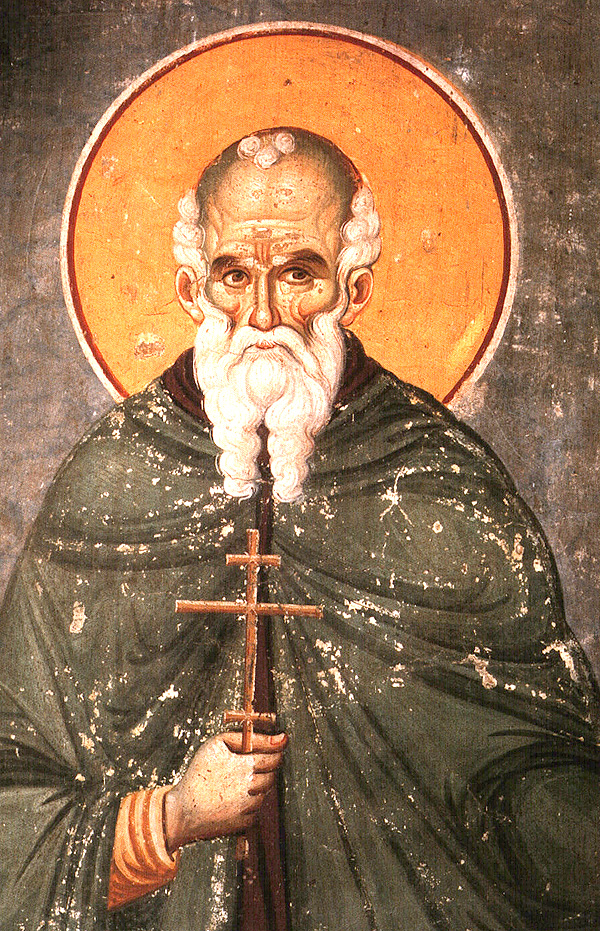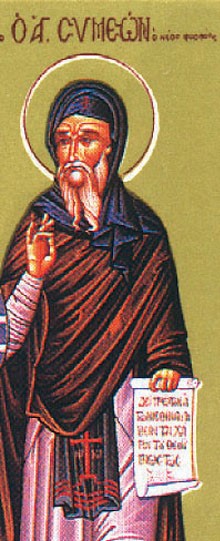Cultural Renaissance

In the East in the 10th century, there was a general continuation of the cultural renaissance of the ninth century. The writings of the Church Fathers were collected and key excerpts compiled in works known as florilegia. For the first time, Lives of the Saints were collected and paraphrased in an elegant style for liturgical usage; this was done by Saint Symeon Metaphrastes (i.e., the Translator).

In 960 Saint Athanasius of Mount Athos (d. 1003) founded the Great Lavra, the first large cenobitic (communal) monastery on Mount Athos. The way was thus opened for the development of the great monastic republic on the Holy Mountain that flourishes to this day. His work was strongly supported by two emperors: Nikephoros II Phokas (r. 963–969) and John I Tzimiskes (r. 969–976).
Saint Symeon the New Theologian (949–1022), for many years the abbot of the Monastery of Saint Mamas in Constantinople, wrote many influential treatises, especially emphasizing the indwelling of the Holy Spirit in Christians, the vision of the Uncreated Light, and ongoing repentance with tears. He is regarded as one of the most important mystical theologians of all time. His prominence is seen in the fact that he is one of only three figures in the Church who are called “the Theologian”—the other two being St John the Evangelist and St Gregory of Nazianzus. In the 14th century Saint Gregory Palamas will build upon the work of this wonderful saint who walked with God with profound intimacy and who described his experiences with the living God with powerful, poetic eloquence.
From the Hymns of Divine Love
by Saint Symeon the New Theologian
Master, how shall I express Your strange marvels,
how shall I relate with words the depth of Your judgments
which You accomplish each day in us, Your servants?
How do You not cast Your eyes on the infinite number of my sins
and not take into account the actions of my malice, O Master?
But You have mercy, You protect me, You enlighten and nourish me
as if I carried out all Your commands, O my Savior.
Not only do You take pity on me, but, still more,
You grant me leave to remain in the presence
of Your glory, of Your power, of Your majesty.
You talk with me and You address words of immortality
to the one who is weak, lowly, unworthy to live.
How do You cover my sullied soul with light
and render it divine light, immaculate?
How do You invest with light my miserable hands
which, by sinning, I have sullied with the stains of sin?
How do you transform my lips by the ray of Your Divinity,
from unclean, making them holy?
And my filthy tongue, O Christ, how do You purify it
and give it a share in the eating of Your flesh?
How do You condescend to see me and to let me see You,
to let me hold You in my hands, You who hold all things,
You who the celestial armies cannot contemplate,
inaccessible even to Moses, the first of the prophets?
For he was not judged worthy to see Your face,
nor was any other man, to avoid that he die.
You therefore the only incomprehensible, the only inexpressible,
that no one can contain, inaccessible to all,
to hold You, to embrace You, to see You, to eat You,
to possess You in my heart, O Christ, how am I judged worthy of it?
How am I not consumed, but divided between joy and fear
and singing, O Christ, Your boundless love for man?
(Hymn 19)
